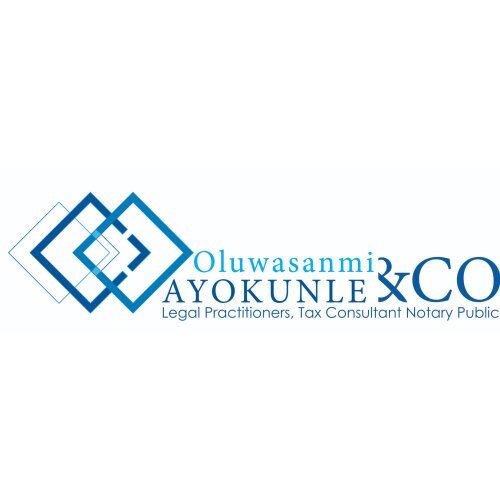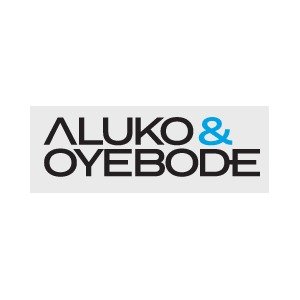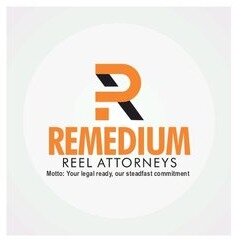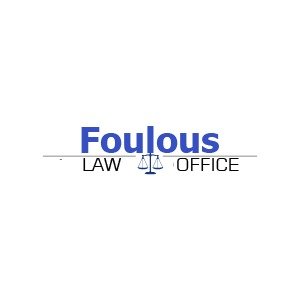Best Energy, Environment & ESG Lawyers in Nigeria
Share your needs with us, get contacted by law firms.
Free. Takes 2 min.
Or refine your search by selecting a city:
List of the best lawyers in Nigeria
Legal guides written by Adeola Oyinlade & Co:
- Procedure and Requirements for Work Permit and Visas in Nigeria
- The Step-By-Step Procedure of How to Apply for Microfinance Bank License Online in Nigeria
- How to Ensure the Smooth Recognition and Enforcement of Foreign Judgments in Nigeria
About Energy, Environment & ESG Law in Nigeria
Energy, Environment and ESG laws in Nigeria reflect the country’s efforts to balance economic growth with responsible resource management and sustainable development. Nigeria is a major energy producer in Africa, notably in oil, gas and renewables, making effective legal frameworks essential for both domestic and foreign stakeholders. Environmental protection and sustainability are increasingly important, as Nigeria responds to global trends focusing on climate change, biodiversity, and ethical business practices. ESG stands for Environmental, Social, and Governance criteria, which companies and investors use to measure a business’s ethical impact and sustainability. These areas are regulated by different statutes, regulatory agencies, and international commitments, shaping how individuals and organizations operate in Nigeria’s energy and environmental sectors.
Why You May Need a Lawyer
There are numerous situations where legal guidance in the field of Energy, Environment and ESG becomes necessary in Nigeria. Common scenarios include:
- Acquiring licenses or permits to explore, produce or market energy resources such as oil, gas or renewables
- Complying with environmental impact assessment requirements before starting construction or industrial operations
- Resolving land ownership or community disputes involving energy developments
- Addressing pollution allegations or environmental damage claims against a business or individual
- Navigating cleanup liabilities or remediation requirements after environmental incidents
- Structuring energy deals and investments to comply with local and international ESG standards
- Participating in government procurement or public-private partnerships in the energy sector
- Reporting and disclosure obligations related to ESG for listed companies or multinational operators
- Responding to regulatory investigations or enforcement actions
- Understanding evolving laws and staying compliant with shifting regulations and global best practices
Local Laws Overview
Energy, Environment and ESG regulations in Nigeria derive from several key laws and regulatory bodies. Some of the most important legislative frameworks include:
- Petroleum Industry Act (PIA) 2021: The PIA consolidates the regulations for Nigeria’s oil and gas industry, setting out licensing, operational, investment and environmental obligations.
- Electric Power Sector Reform Act 2005: Provides the basis for privatization and regulation of the electric power sector, impacting both energy generation and environmental compliance.
- Environmental Impact Assessment (EIA) Act: Requires proposed projects to undergo rigorous environmental review before approval and development.
- National Environmental Standards and Regulations Enforcement Agency (NESREA) Act 2007: Establishes the federal agency responsible for enforcing environmental laws and standards.
- Mining Act and Renewable Energy Policies: Regulate mining activities and promote renewable energy, each with specific environmental responsibilities.
- Corporate Governance Codes: Both public and private companies are increasingly required to comply with codes and guidelines for ESG, including the Nigerian Code of Corporate Governance and the Nigerian Stock Exchange’s ESG Disclosure Guidelines.
In addition, Nigeria has ratified several international conventions on environmental protection and sustainable development that influence local practice. State-level regulations may also apply, particularly concerning land use and natural resource extraction.
Frequently Asked Questions
What does ESG mean for companies operating in Nigeria?
ESG stands for Environmental, Social and Governance. It refers to standards for a company’s operations accounting for its environmental stewardship, social responsibility, and corporate governance practices. In Nigeria, both regulators and investors are placing increasing importance on ESG in decision making, disclosures, and reporting.
Do I need a license to operate in Nigeria’s energy sector?
Yes, licenses or permits are generally required to explore, extract, transport, or distribute energy resources, whether oil, gas, power or renewables. The exact type of license depends on the specific resource and operation. Legal advice is recommended to ensure proper compliance.
What are the penalties for violating environmental laws in Nigeria?
Penalties can range from fines and cleanup orders to criminal prosecution. Agencies like NESREA and the Department of Petroleum Resources have the power to enforce compliance, sanction violators, and, in severe cases, shut down operations or withdraw permits.
What is an Environmental Impact Assessment (EIA)?
An EIA is a legal requirement for most large or impactful projects in Nigeria. It involves studying and reporting on the potential environmental impacts of a project before it begins. Failing to do an EIA can result in legal action, project delays, or rejection by regulators.
How do I report environmental pollution or violations?
Complaints about pollution can be reported to NESREA, the State Ministry of Environment, or the relevant sector regulator. Providing clear information, evidence and location details helps expedite investigations.
Are ESG disclosures mandatory for Nigerian companies?
For some publicly listed companies, ESG disclosures are increasingly required by the Nigerian Stock Exchange and other regulatory bodies. Even private companies may be required to comply by contractual obligations, especially when dealing with international partners or investors.
Can communities take legal action against environmental harm?
Yes, affected communities or individuals may file lawsuits or petitions if they suffer harm due to pollution, land degradation, or other forms of environmental damage. Legal representation can help protect rights and seek compensation.
What incentives are available for investing in renewable energy in Nigeria?
The Nigerian government offers various incentives for renewable energy projects, including tax holidays, import duty exemptions, and special financing options. Legal advice can help navigate the qualifying process and secure these benefits.
What role do government agencies play in energy and environmental regulation?
Government agencies develop policies, issue licenses, enforce laws, monitor compliance, and penalize violations in the energy and environmental sectors. Key agencies include NESREA, NERC, DPR, Federal Ministry of Environment, and State Ministries.
How can I stay up to date with changes in energy, environment and ESG law?
You can stay updated by subscribing to legal newsletters, following regulatory agencies’ updates, participating in relevant industry associations, and seeking legal advice from specialists who monitor ongoing legal developments in Nigeria.
Additional Resources
- National Environmental Standards and Regulations Enforcement Agency (NESREA): Responsible for monitoring and enforcing compliance with environmental laws and regulations.
- Federal Ministry of Environment: Oversees the development of national policies and regulations on environment and sustainability.
- Nigerian Electricity Regulatory Commission (NERC): Regulates Nigeria’s power sector, including licensing and compliance.
- Department of Petroleum Resources (DPR): Responsible for licensing and monitoring of oil and gas operations.
- Nigerian Investment Promotion Commission (NIPC): Offers information on incentives and regulatory requirements for investors, including in energy and renewable sectors.
- Nigerian Bar Association (NBA): Provides directories of qualified lawyers, including specialists in energy, environment and ESG law.
- Local universities and research centers: Offer academic resources and training on energy and environmental law in Nigeria.
Next Steps
If you need legal assistance relating to Energy, Environment or ESG matters in Nigeria, consider taking the following steps:
- Clearly define your issue or objective before reaching out to a legal professional
- Gather any relevant documents, correspondences, permits, or regulatory notices
- Search for a law firm or lawyer with proven expertise in energy, environment, or ESG regulation in Nigeria
- Book a consultation to discuss your situation, obligations, risks and possible strategies
- Stay proactive in following up with your legal advisor, ensuring compliance and addressing any new developments as they arise
Navigating energy, environment and ESG law can be complex due to evolving standards and regulatory realities. Consulting with a specialized legal professional can help you achieve compliance, manage risks, and position your organization or project for sustainable success in Nigeria’s dynamic market.
Lawzana helps you find the best lawyers and law firms in Nigeria through a curated and pre-screened list of qualified legal professionals. Our platform offers rankings and detailed profiles of attorneys and law firms, allowing you to compare based on practice areas, including Energy, Environment & ESG, experience, and client feedback.
Each profile includes a description of the firm's areas of practice, client reviews, team members and partners, year of establishment, spoken languages, office locations, contact information, social media presence, and any published articles or resources. Most firms on our platform speak English and are experienced in both local and international legal matters.
Get a quote from top-rated law firms in Nigeria — quickly, securely, and without unnecessary hassle.
Disclaimer:
The information provided on this page is for general informational purposes only and does not constitute legal advice. While we strive to ensure the accuracy and relevance of the content, legal information may change over time, and interpretations of the law can vary. You should always consult with a qualified legal professional for advice specific to your situation.
We disclaim all liability for actions taken or not taken based on the content of this page. If you believe any information is incorrect or outdated, please contact us, and we will review and update it where appropriate.
Browse energy, environment & esg law firms by service in Nigeria
Nigeria Attorneys in related practice areas.
Browse energy, environment & esg law firms by city in Nigeria
Refine your search by selecting a city.

















